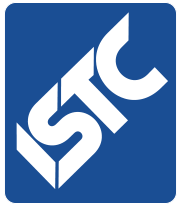Introduction
Technical communicators come from a wide range of professional and educational backgrounds. Some are subject matter experts (SMEs) and others come from non-technical backgrounds with an education in communication.
What do we mean by a technical communicator?
A technical communicator is someone who can explain a technical product or service to those who need to know about it.
This may involve describing a product or service, explaining what it can do and how to use it, or specifying the steps to follow in a procedure, and when to do them.
The role of a technical communicator is varied and can often be split into subcategories of job titles, including:
- Technical Author
- Information Architect
- Technical Illustrator
- Information Designer
- UX Writer
Sometimes these roles overlap which means that technical communicators need to be:
- Versatile (able to contribute to projects you’ve never worked on before)
- Adaptable (able to learn about new subjects and how to use new technology)
- Clear communicators (able to interview SMEs and to elicit the information you need)
What skills and training do you need?
The skills and traits you need fall into four main groups.
You may already have the skills outlined below, but if you don’t, a number of training courses are available and the ISTC provides a mentoring scheme for Entry-level members.
Communication skills
You need excellent verbal and written communication skills. Depending on the industry in which you work, the purpose of your content and the people who are using it, you may produce a lot written (text-based) documentation or focus more on images, simulations, videos and flowcharts.
Regardless of the type of output, you need to be able to question subject matter experts (SMEs). You also need to be able to distil what SMEs tell you into information at an appropriate level of complexity (both in terms of level of content and language) for the people needing to use it.
You need to use language consistently and appropriately in your work, and conform (where applicable) to any standards associated with a specific industry, that have been set by the organisation for which you are working or are generally good practice
Subject knowledge
The amount of subject matter knowledge you need as a technical communicator varies greatly depending on both the industry and the intended audience. For example, if you are communicating about consumer products for consumers, you are probably in a good position to understand what they need.
In contrast, if you are writing for people working in the pharmaceutical, nuclear or software development industries, you may need some specialist knowledge of the appropriate area so you can pitch your communication at an appropriate level.
Technical skills
Technical communicators use a number of software applications to do their work. While no-one can know every application in depth, a general understanding of the types of application out there and what they are used for is useful.
Detailed knowledge tends to grow as you use an application, and you can also attend tool-specific training courses or (in many cases) download trial versions to play.
Personality traits
The sort of person who tends to make a good technical communicator is one who has an eye for detail but is also able to see the bigger picture. He or she will be curious – about how something works, how to use it, how to use it more effectively or more efficiently.
Being able to see things from someone else’s perspective is good – what is important to them, why are they doing what they are doing, what do the need to know.
Finally, tenacity.
You may have questions, and you need to keep asking them until you get an answer you can use. You may not understand all of the answer, but enough to be sure that it will make sense to those who should.
Why is this important?
Although many of these skills can be learnt, it’s important to enjoy what you do. A major part of being a technical communicator is the ability to explain technical content to different audiences, adjusting the level of complexity to match their needs.
If you are happy learning about new things, working out how best to use them and then showing someone else, this could be the career for you.
Contributors to this article
Jake Cahill
Alison Peck – Clearly Stated
